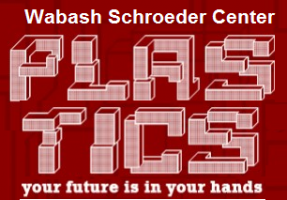During my previous winter break, I did an one-month externship at Cheevers & Company on the floor of Chicago Stock Exchange with one of our prestigious Wabash alumni—John Castro. I met John during a career services event in downtown Chicago. He is on the advisory board of the Security Traders Association of Chicago and he’s an institutional trader at Cheevers and Company. Being an Economics and Math double major; I wish to pursue a career in investment banking or consulting. So I thought it would be great if he could host me this winter for a job shadowing externship. Luckily, I talked to the right guy, a guy who eventually became my first mentor in the industry of finance.
My externship started as soon as the semester was over. Working in the Financial First building next to Chicago Board of Trade in downtown Chicago gave me a completely different working experience. During this externship, I felt I was treated as an actual intern because everyone in the office was always willing to help patiently and took my questions seriously. At the very first week, Mr. Castro helped me go through most of the basic finance terms and concepts and taught me how to conduct effective finance researches. He showed me how the business was operated from different offices and how the stock trading was executed as a whole. Later on, he started to put me in front of different desks to see how different sectors of the business works. I went to the back office to see how they do the daily clearing of all the trading records, traveled to the compliance office to see how they keep track of every executed stock, and I have been to the actual CBOE trading floor to see how brokers start the trade by making their first calls. Castro not only helped me to get better comprehensive approaches to the stocks trading and finance world, but also helped me expand my social networks. I also helped my boss to write buy and sell tickets on a daily basis to better understand the nature of business.
I should say this is definitely the most unique externship going through Wabash Career Services. Since the duration of this externship is one month- which is much longer than any other ordinary two-day job shadowing externship- I received more chances to interact with other people in the office. At the end of the externship, I could greet everyone in the office by their names and their normal lunch orders. And unlike other “employers,” my boss bought me launch every day. In order to show the special cares for the international minorities in the office, we had Chinese-Tuesday every week. Furthermore, being a freshman, I am a blank sheet of paper to this “messy” industry, so Castro assigned me different readings and independent research after work so that I could have better understand of the theories in terms of social practices. Furthermore, this externship expanded my horizon in the finance industry and helped me to build the relationship to the people who are working in stock exchange and investment banking.

Castro served as a mentor for Zuo during his internship, providing real-world experience in the world of finance
This externship is definitely unforgettable, not only for the knowledge I learned about the finance industry, but also because of the people I met during this winter break. John Castro is my boss who hosted me throughout my externship; he is a Wabash alumnus who graduated in class of 1997. He is my mentor more than my teacher in many ways, he is a real example of how a Wabash man think critically, act responsibly, lead effectively and live humanely. John is now considering hosting one Wabash every winter and if you are available and interested in Finance, then you can’t miss it. Eventually, I should say, so proud to be a Wabash man!
-Yiyuan Zuo Tiger ‘16




